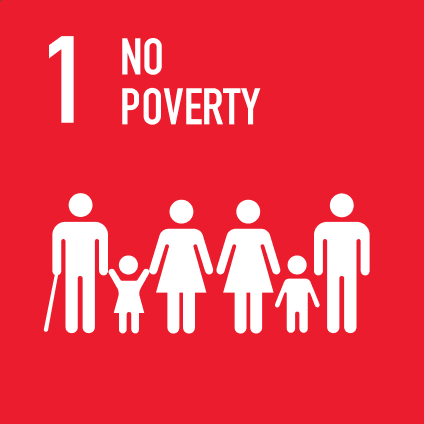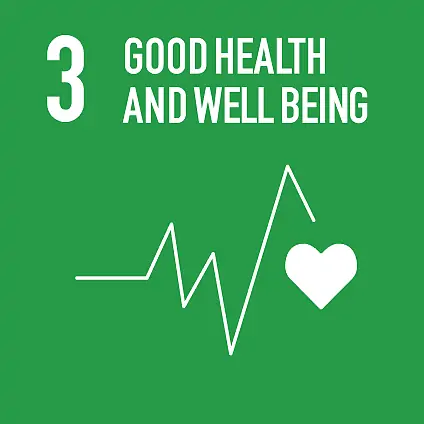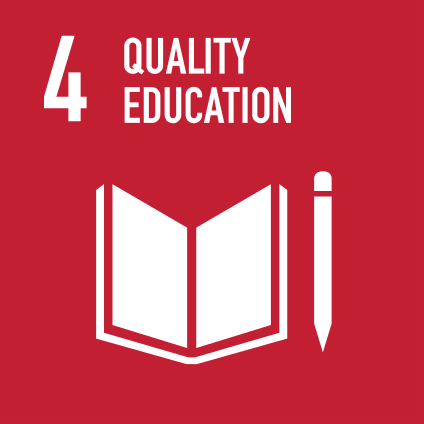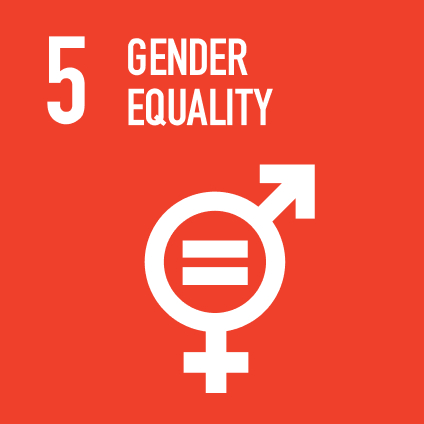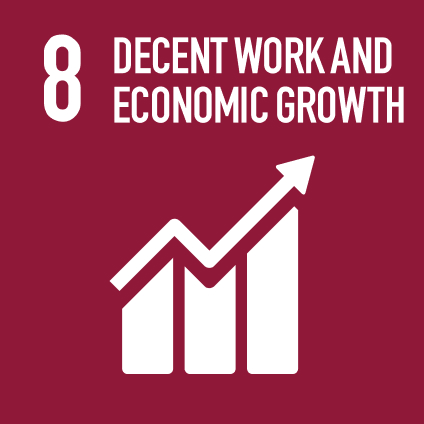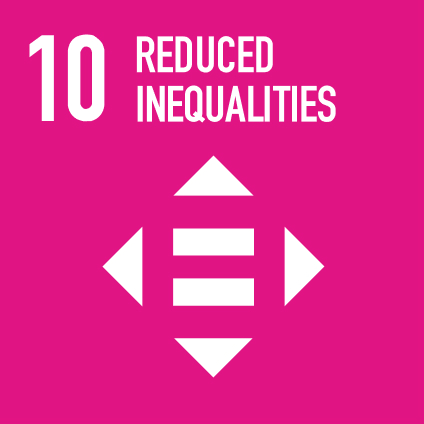Using money to do good: The social impact of our projects
We describe ourselves as a social business. What does that mean? Using our efforts to achieve a balance between economic, ecological and social aspects. As a social dimension, sustainability has always formed part of our DNA from the very outset of our project, which is why we decided that our mission could not be purely ecological.
![[Translate to English:] Unsere Projekte schaffen soziale Perspektiven für die Menschen in Panama.](/fileadmin/user_upload/the-generation-forest-nachhaltig-aufforstungsprojekt-header-social-impact.jpg)
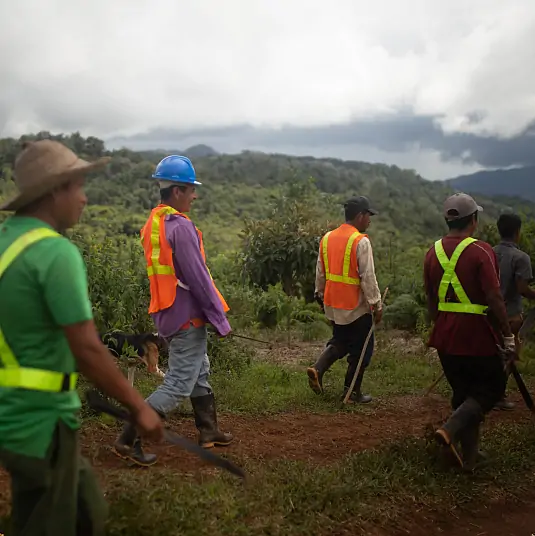
Working together for the common good: with Generation Forests for a better world
The economic approach behind our afforestation projects means we can create and sustain fair jobs over the long term. With our unique, sustainable Generation Forests concept, we want to set a good example and show how climate protection, social impact, and business can go hand-in-hand. For only with reforestation and commercial management is it possible to create fair jobs and genuine economic alternatives for the local people.
Intergenerational fairness: thinking about tomorrow, today
By uniting ecology, economics, and social affairs, we can join together to ensure that investing with us also benefits future generations. In all of the activities we do today, we are already considering the consequences for the future. This is how we can make this a world where future generations will prosper.
Together with indigenous communities
Panama is an emerging economy with great disparities between rich and poor. The large majority of people earning a living in Panama’s agriculture and forestry industry are of indigenous origin. Over the years, close collaboration and long-term partnerships have developed between indigenous communities and our partners.
For the local people: collaborating on an equal footing
Half of the agricultural workers in Panama have no employment contract, meaning they are not insured, have no right to work leave, and have scarcely any safety at their place of employment. We want to change this! We see it as fundamentally essential to improve the social circumstances of our local staff. Our economic afforestation model allows us to create fair and sustainable jobs. We pay guaranteed wages and social bonuses above the market rate.
How many jobs are we able to create through the cooperative’s projects?
We have a forestry services provider who recruits workers for forestry work and our nursery. Two types of contracts are used here: permanent and fixed-term contracts (3 months or 10 months). The majority of temporary workers are hired for the planting season, after which some of them are retained to perform maintenance work and other activities. Since May 2022, 53 new employees have been recruited for the cooperative’s afforestation projects. This year a total of 87 workers will be employed, including the administration and forestry workers.
The afforestation activities, and especially those connected with cultivation, are not always the same. During the initial years, the cultivation is much more work-intensive before easing off over time. Other activities are only needed at certain times or under particular conditions (such as thinning work, which is only carried out some years).
We also factor in various economies of scale where a range of activities can be generally performed more efficiently the larger the area.
It is due to these types of fluctuations that some of our forestry workers are hired on a seasonal basis. The majority of them come from the indigenous community of the Ngobe-Buglé and have already worked with our partner, Futuro Forestal.
In addition, some of our staff remain on-site all-year round to watch over the fincas, control tree growth and any infestations, etc.
How many jobs benefit indirectly from this (e.g., tree nursery, seed collection)?
We reckon that more than 80%, perhaps more, of this year's afforestation will be attributable to the cooperative. That means that our cooperative is generating considerable indirect benefits because the nursery delivers the saplings for the afforestation phase. Our nursery currently employs 30 nursery workers, the majority of whom are from the Emberá community of Piriatí, along with 4 administrative staff.
We have contracted several teams for our seed-collecting operation. One of the teams has 9 people (6 in Darien and 3 in Las Lajas) employed in the nursery), and there is an external team of 5 persons from the Emberá community of Arimae (close to other current cooperative projects taking place in Darién)
What are the wage levels?
The statutory minimum wage in Panama currently amounts to 1.91 US dollars per hour, or 15.28 US dollars per day.*We pay a daily wage of 18.32 US dollars, which is around one-and-a-half times the statutory rate.
We also provide free accommodation to our employees. The camps in the fincas are equipped with kitchens, bathrooms, water, and solar power. In addition, each month, we issue vouchers worth 50 US dollars for subsistence costs. These are provided within the camp, and our local administration staff ensures that stocks are regularly checked and topped up as necessary.
We also take care of the transport to the camp and then back again after the season ends. Managerial staff is given mobile phone subscriptions so that they can perform their activities properly.
*El Salario Mínimo en Panamá - Ministerio de Trabajo y Desarrollo Laboral (mitradel.gob.pa)
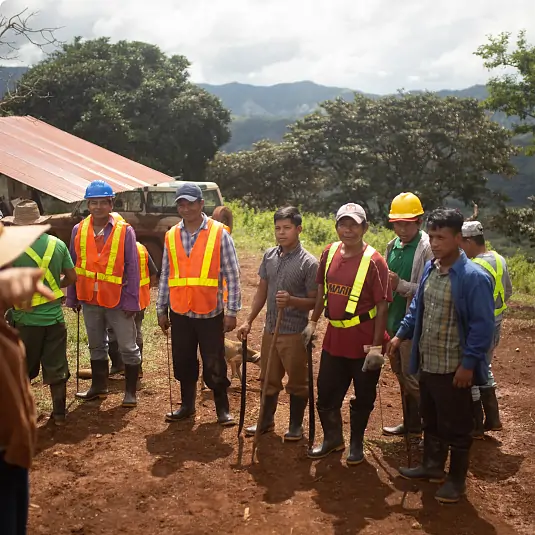
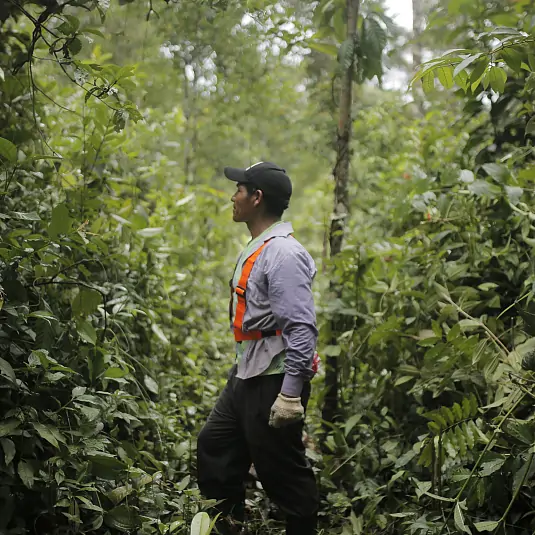
Social insurance
Medical, accident, and pension insurance is a legal requirement in Panama. Nevertheless, numerous companies, especially in the agriculture and forestry industry, fail to fulfil all their obligations here. Not so with us. All of our employees are registered for social insurance from the very first day.
Education and training opportunities
Our staff receives regular training and continuing education. Our programme includes subjects like the suitable handling of flora and fauna, protecting water resources, proper waste management within the camps, as well as continuing literacy education. Alongside that, we also conduct regular safety training for the prevention of accidents in the workplace.
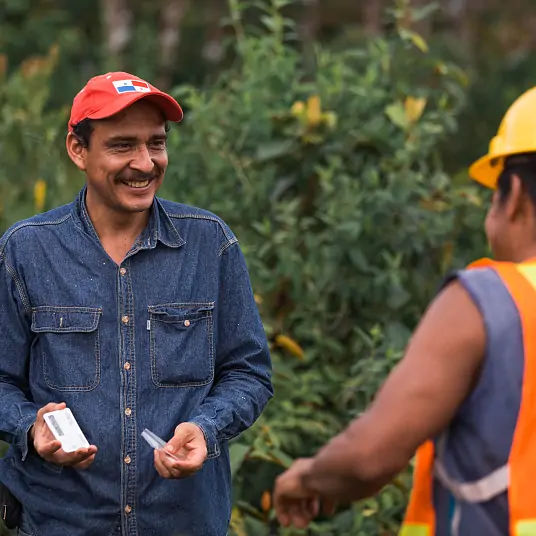
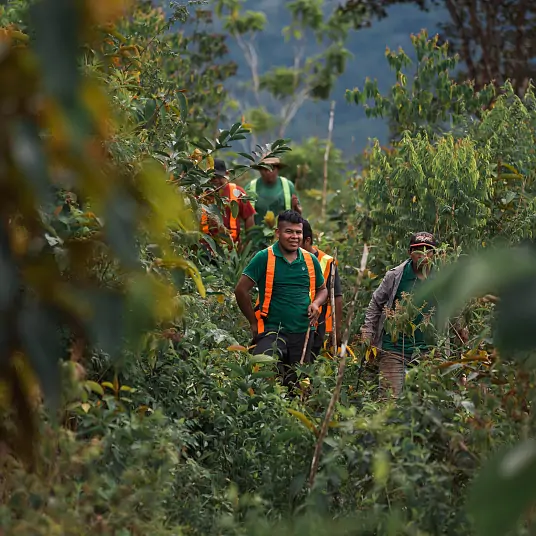
Additional support
A large proportion of our seasonal workers come from indigenous communities who rarely have fair employment available in their vicinity. For many of them, the income they receive from our forestry projects is absolutely essential for feeding their families and relatives. However, our employees do not always have bank accounts, so we have a system for the direct payment of wages to their families.
We also think that it is vitally important that indigenous communities have stable food sovereignty. This is why we reserve small areas of our project sites to enable them to cultivate their own food.
Furthermore, we hope that our sustainable afforestation activities and the training opportunities we provide will have a long-lasting positive impact and give our employees good prospects for the future.
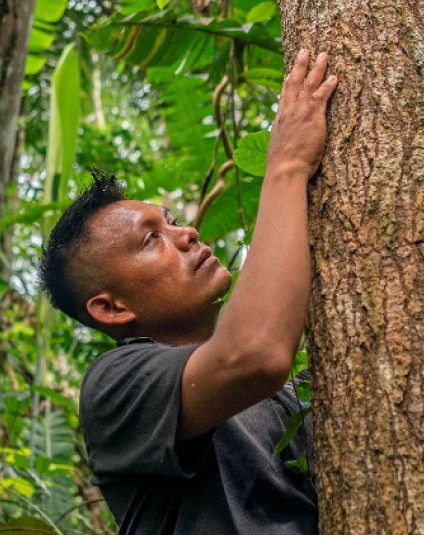
Afforestation as an opportunity for education and training!
“I want to flourish as part of the business. I want to become a skilled worker in this area. To achieve this, I am happy to learn more, and I want to be continuously educated, undertake training sessions, anything, and everything.”
Arnelio Herrera
Forestry worker from the Guna de Wagandí people.
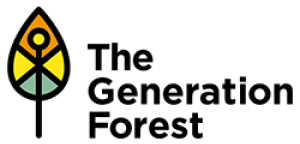
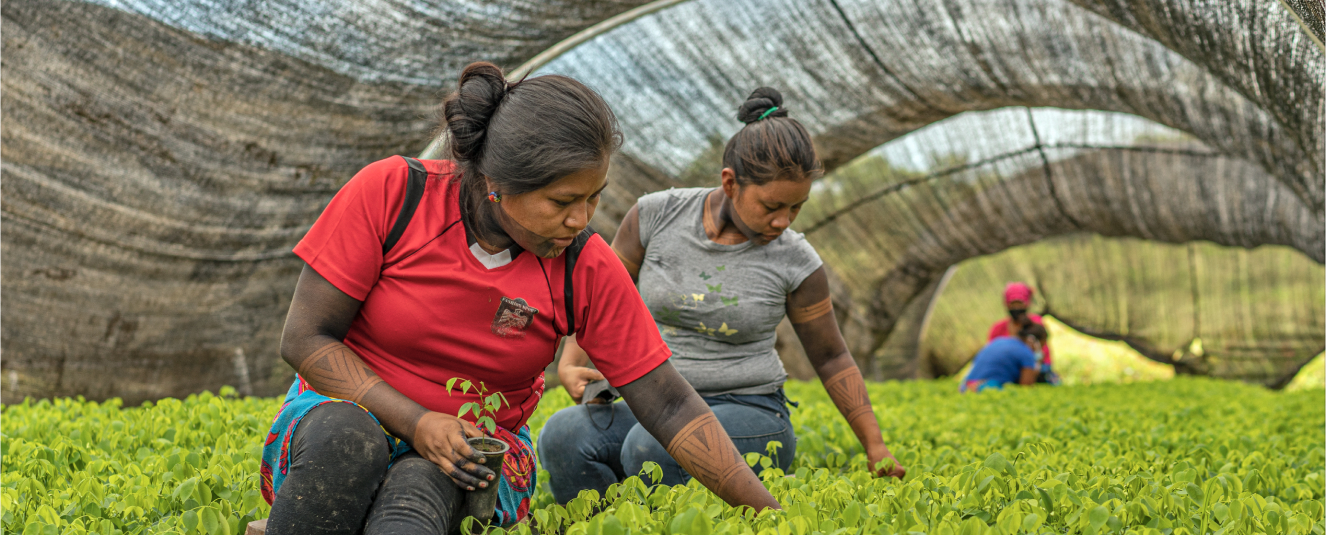
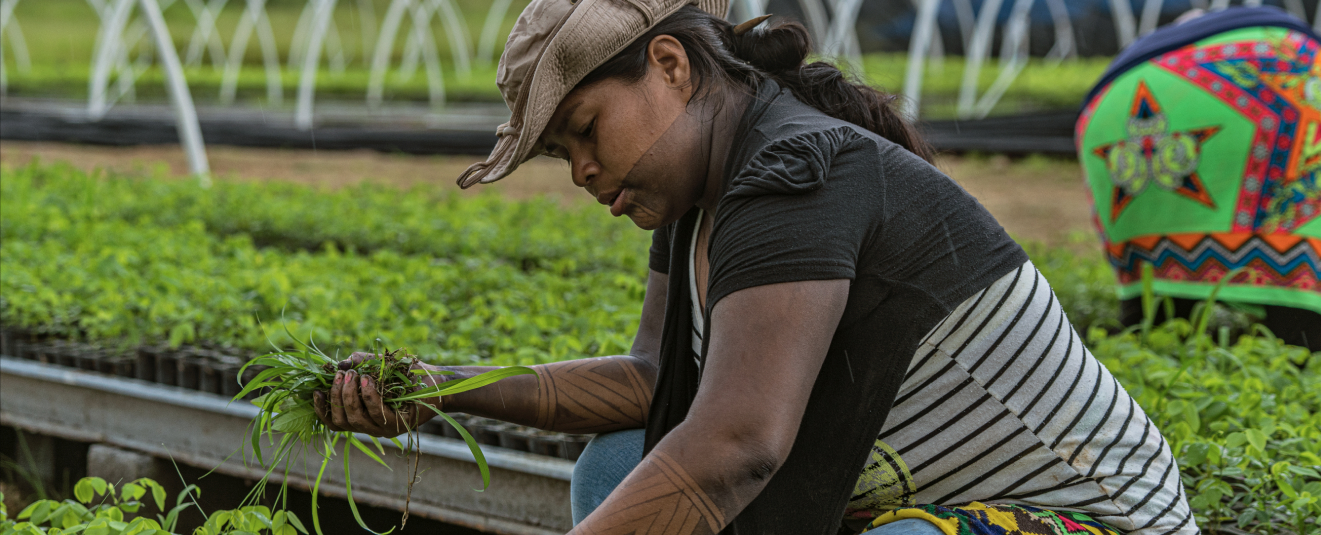

![[Translate to English:] Baumschularbeiterin pflanzt Setzlinge ein.](/fileadmin/user_upload/the-generation-forest-arbeitsplaetze-lohnniveau-m4-social-impact-1.jpg)
